Vernon Smith is a Nobel Prize-winning economic scientist whose groundbreaking work helped reshape how we think about trust and trade, while Peter McLaren is a legendary advocate for better schools — a revolutionary who played a seminal role in the development of critical pedagogy. On the surface, these eminent professors at Chapman University might seem to lack commonality – Smith is considered a libertarian, and McLaren is a Marxist humanist. We hope their fervent but respectful dialogue demonstrates that our differences need not make us enemies.
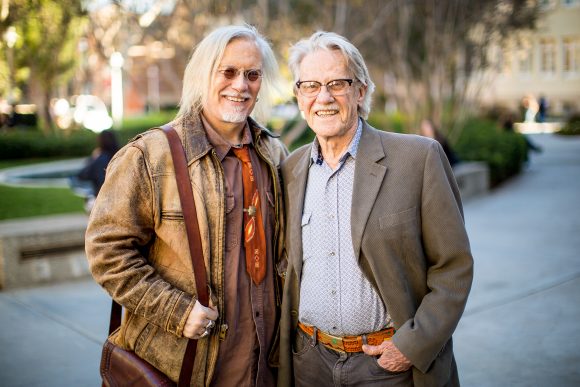
Over six days in late January, the two scholars traded 53 emails totaling more than 12,000 words, touching on subjects ranging from early jobs to principal influences, liberation theology to economic necessity, the writings of Adam Smith to the teachings of Paulo Freire.
Along the way, professors Smith and McLaren found much that connects them, starting with their working-class roots and extending through their shared appreciation for Hopi and Navajo jewelry. As they met for a campus photo shoot at the end of the week, they made plans to share a meal with their wives at an eatery within walking distance of their homes in Old Towne Orange.
Following are excerpts from their exchange.
McLAREN: It’s a pleasure to get a chance to talk with such a greatly distinguished scholar who is highly regarded by everyone at Chapman. When I arrived at Chapman from UCLA three years ago, I would sometimes see Vernon at the Athenaeum on campus surrounded by his associates, who appeared hyperkinetic in contrast to Vernon’s poised yet engaging demeanor. There was never a touch of arrogance in his bearing, despite his winning the Nobel Prize in economics.
SMITH: I don’t think the Nobel has changed me. I feel like the sentiment expressed in the movie The Hoodlum Priest. In a scene outside the state prison, a lone picket is carrying a sign protesting capital punishment. He asks a guard for a light. The guard lights his cigarette and says, “Don’t you know that you can’t change the world by carrying that sign?” The picket replies, “I’m not trying to change the world; I’m just trying to keep the world from changing me.”
McLAREN: Colleagues of mine familiar with my Marxist humanist work would sometimes wax jocular about how they would like to see a conversation between the two of us, not in terms of our theories of economics, since I am not an economist, but more in terms of what might be our political differences. I did enjoy chatting briefly with you once – I doubt that you remember – and I asked you jokingly when you were going to teach a course on Marx, and I can’t recall exactly what he said, but I do remember you mentioning the work of Adam Smith.
SMITH: I do not know Marx that well. He followed Adam Smith in his labor theory of value – not wrong, but incomplete. If you use labor to pound sand it has no value, and no government can know that value, only free peoples. But I knew Marx’s name long before I knew that there was a field of study called economics. I grew up in Wichita surrounded by activists in the American Socialist Party. I look back very warmly on those years. American Socialists got two things right: Opposition to American foreign adventurism, which has and continues to do infinitely more harm than good. And their uncompromising stand against racial, ethnic, religious forms of discrimination. But their economics was dead wrong. I came to see that through self-education more than my Harvard education, which punted on most of the important issues.
McLAREN: I can see that like me, you have had many influences, both subtle and profound, starting in childhood. Prior to teaching elementary school, I worked as a copy boy at Canadian Press, an orderly in the cancer ward of a children’s hospital, a librarian, a gardener, a factory worker and general laborer. I protested the Vietnam War and met Timothy Leary (who after an evening at the Carousel Ballroom in San Francisco, wrote me a note — “You are now free”). Poet Allen Ginsburg encouraged me to pursue writing. I met the Black Panthers in Oakland and started reading Malcolm X and works from the Harlem Renaissance.
After my undergraduate years, when I became an elementary schoolteacher, I took an assignment in a school in an area of Toronto that was almost entirely public housing and had a reputation for violence. The first day I went to work, a teacher was in the hall banging his head against the wall, which was marked with blood for days. The first thing I did was remove all the furniture from my classroom, replace it with couches, and pillows that I would find in the garbage in the back alleys of rich districts, and I brought in a set of drums. The students and I would just play drums all day for weeks. No reading, writing or doing math, just drumming. Later I wheeled in an old piano. Their tests scores went up. I stayed at the school for nearly five years.
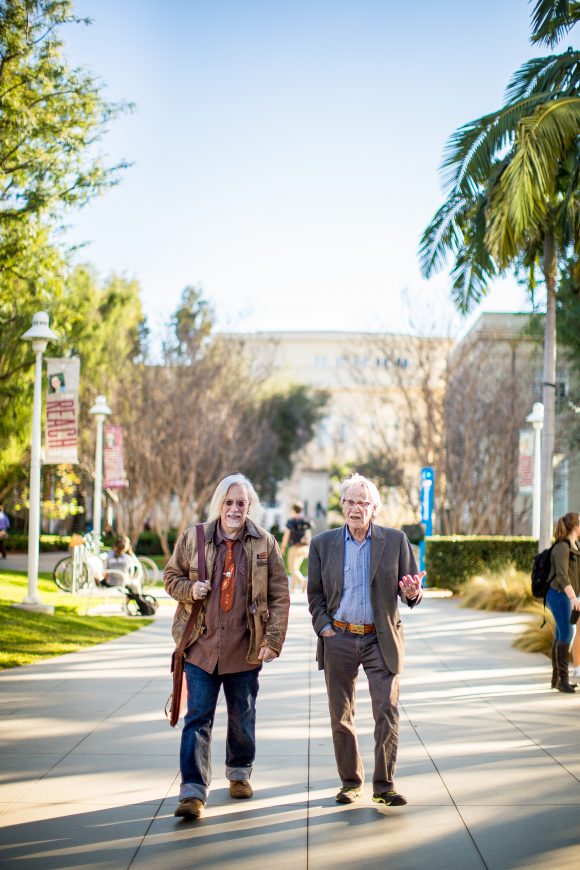 Before entering graduate school, I had written a diary of my experiences as an elementary schoolteacher, and it was a Canadian bestseller. While in my Ph.D. program at the University of Toronto, I converted to Catholicism. So you and I have our Christian faith as common ground. My Christian orientation is the field of liberation theology, mostly the pastoral tradition coming from Latin America. My mentor, the great Brazilian Catholic Marxist educator Paulo Freire (whose bust stands at Chapman near those of Martin Luther King and Benito Juarez), exerted a profound influence on my development as a social justice educator, and his book Pedagogy of the Oppressed is one of the greatest educational works ever written.
Before entering graduate school, I had written a diary of my experiences as an elementary schoolteacher, and it was a Canadian bestseller. While in my Ph.D. program at the University of Toronto, I converted to Catholicism. So you and I have our Christian faith as common ground. My Christian orientation is the field of liberation theology, mostly the pastoral tradition coming from Latin America. My mentor, the great Brazilian Catholic Marxist educator Paulo Freire (whose bust stands at Chapman near those of Martin Luther King and Benito Juarez), exerted a profound influence on my development as a social justice educator, and his book Pedagogy of the Oppressed is one of the greatest educational works ever written.
In Latin America, I learned a great deal about U.S. foreign policy, the role of the CIA in toppling democratically elected governments, U.S. support of death squads. As a Canadian-American, I believe that both our nations need to face some ugly facts about our history, including the wholesale slaughter of indigenous peoples, and in the case of the U.S., the horror of slavery, before we can begin to live up to our self-descriptions as two of the world’s greatest democracies. The historian Howard Zinn has written extensively on the history of the United States from the perspective of those who had to suffer through much of it, and I recommend his work to my students.
SMITH: I was brought up on all that, but such human crimes are far older than U.S. and Canadian history, and after you learn it you have to ask what’s to be done with it? Yes, power corrupts, and absolute power corrupts absolutely. You saw that in your Catholic experience, but in the U.S. Catholics are free to oppose that. The cycle of negative reciprocity came up naturally in class dialogue one day. The course readings included Smith and Hume, Ridley’s “Rational Optimist” and Steinbeck. We were discussing a section of The Grapes of Wrath, a work in which students can appreciate the human cost of change. Where did Grandpa Joad get the land he lost in debt foreclosure? From shooting the Comanche! So how about those suffering Comanche families?
Trade brings people together in mutually beneficial exchanges. So far as we can tell, humans started to trade soon after they started to talk. No one knows who said, “If goods don’t cross borders, soldiers will.” But the first thing government wants to do is cut off trade with Cuba, or North Korea, or whomever, in government punishment of other governments, but it’s the people – those in mutually beneficial trade – who are hurt. Trade brings people together in mutual dependence, and the countries that are prospering are trading, not fighting. President Trump’s wall will not be paid by Mexico, but in what our people and theirs have to give up in lost trade.
You and I were blessed; too many people in this sorry-ass world are not, but we made a difference. We turned our humble origins into unimaginable success for one reason only: We were born free, and that is the “privilege” that most matters.
You were at the heart of those experiences when you worked as a copy boy, orderly, librarian, gardener, laborer, schoolteacher; in all you had the experience of benefiting from the services you gave to others. Then your life was transformed when you discovered that your diary, written from the heart as an elementary schoolteacher, was of value to others. You did well making lots of people happy.
My life has been fortunate too. Before age 12, I earned money by collecting old newspapers, selling them for a half-cent a pound. Rags were a bonanza, you could sell them to tile and floor polishers for 7 cents a pound, and I collected 100 pounds from that blessed market. At age 12, I went to work for a drug store for 8 cents an hour delivering on my bicycle; learned to operate a fountain like the one that used to be in Watson’s in the Orange Plaza. In 1943, I was able to go to work at Boeing Wichita for 70 cents an hour; $5.40 a day was a fortune, and living at home I saved it all. Ended up for a year at Friends University, financed from those savings, then to Caltech, where I bussed dishes and mowed lawns.
My big transformation, similar to your diary, came when I discovered that people were willing to pay you to be a professor. They called it, and all my other jobs, work. But as Gibran said, “Work is love made visible.” I see from your story that you agree!
McLAREN: Thank you for sharing your story, Vernon. Indeed, we are fortunate to receive a salary for doing what we love in a profession that, at its best, promotes the well-being of others and society in general.
I have been reading the work of Rene Girard, because his anthropological investigations have impacted theology in profound ways, and I am very interested in liberation theology. As I understand it, Girard was drawn to Christianity while researching structural commonalities between great stories in literature, later on including the rituals and mythologies of early humans. Girard’s main idea is that imitation is at the very root of all of our behavior, and this leads to rivalry as we begin to compete for the same things. I began to wonder: Has Girard’s work at all influenced economics? Curious, I began looking for answers on the Internet today and I came across a video of a scholar using Girard to interpret Adam Smith’s A Theory of Moral Sentiments. It was fascinating. So I thought I would ask you, Vernon, if you are aware of Girard’s work.
SMITH: I do not know Girard, but it looks very interesting. There is a lot of developing interest in morality and economics.
Imitation is central to human learning; it is in our mirror neurons, and others in the ape line. I learned from my parents to emulate the good guys out there, but my sisters did not have the same encouragement. That changed in the next generation. I was the only one of many relatives to go to college, but one of my daughters became a chemical engineer, the other a pharmacist. What is most important is that inequality is declining across generations in free countries.
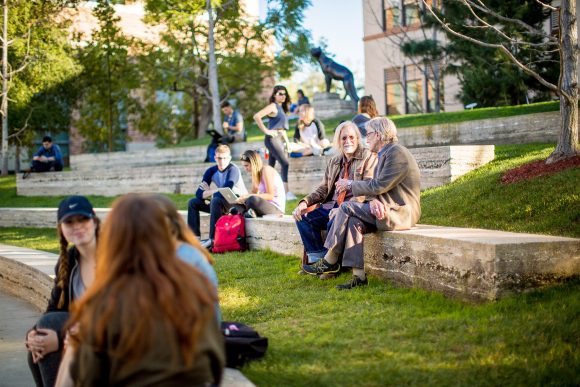 I think Marx was confounding trade, as a cause of specialization and wealth creation, with what today we call crony capitalism – in Adam Smith’s day it was called Mercantilism, which he railed against – a source of nothing but trouble and wealth transfers that are without justification. Investment bankers are prominently chosen as Secretaries of Treasury in the administrations of both Democrats and Republicans. Consequently, in 2008–09 the shareholders were bailed out by the taxpayers, while over at the FDIC, 400 small to medium-sized banks failed at no cost to the taxpayers because the shareholders took their hit.
I think Marx was confounding trade, as a cause of specialization and wealth creation, with what today we call crony capitalism – in Adam Smith’s day it was called Mercantilism, which he railed against – a source of nothing but trouble and wealth transfers that are without justification. Investment bankers are prominently chosen as Secretaries of Treasury in the administrations of both Democrats and Republicans. Consequently, in 2008–09 the shareholders were bailed out by the taxpayers, while over at the FDIC, 400 small to medium-sized banks failed at no cost to the taxpayers because the shareholders took their hit.
Economics is not that difficult, but presidents and too many voters don’t get it. President Trump says Mexico will pay for the wall with a 20 percent tax on Mexican imports. NO; governments pay for nothing. The American and Mexican people will share that tax, and it will make both worse off.
McLAREN: My travels to Latin America taught me that developed countries are often “free” as a condition of the “unfreedom” and underdevelopment of other countries. To what extent has U.S. imperialism played a part in the development of capitalism? The problem is one of overaccumulation – i.e, when the capitalists are accumulating capital that they cannot reinvest. That is, when they cannot unload the commodities churned out of their factories to the extent that they can retain more total income relative to that which goes to labor. This structural dimension of capitalism is dire and cannot be ameliorated by increased taxes or social welfare programs.
I want to follow up on my commitment to socialism as a way forward. But that word has been so confused of late, at least in the public arena here in the U.S.
My work is part of a larger conversation with ecosocialists, environmental activists, indigenous peoples, trade unionists, teachers, philosophers and social justice organizations, about creating an alternative to capitalism which means, for me, putting an end to production for value, which subordinates human beings to things and ruptures relationships between human beings. It also means creating a humanist mode of production, a non-state form of governance that is able to facilitate freely associated human relations. Marxist humanists are committed to creating the conditions of possibility for a new post-capitalist human society, which, after all, is the historical task of Marxism.
Yes, economic development is a necessity, of course. But the forces of production – the expansionary drive in today’s austerity capitalism – are not aimed at improving the lives of people. What they are geared to augment is the accumulation of capital, which has led to an obscene concentration of wealth and a planet on the verge of destruction.
Over the years I have heard conservative economists praise Adam Smith without remarking on some of Smith’s pronouncements such as, “The subjects of every state ought to contribute towards the support of the government, as nearly as possible, in proportion to their respective abilities; that is, in proportion to the revenue which they respectively enjoy under the protection of the state.” Or again, “All for ourselves and nothing for other people, seems, in every age of the world, to have been the vile maxim of the masters of mankind.” If you look at Adam Smith’s major works from a philosophical point of view you can point to a man who was not a radical individualist who defended an autonomous, self-regulating market but a moralist who argues that human beings are not motivated in economic transactions mainly by their own self-interest.
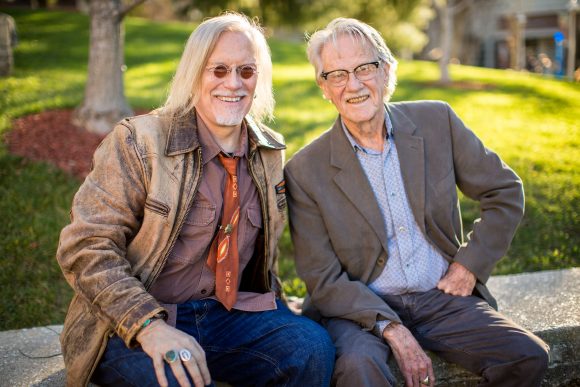 SMITH: Adam Smith was not a champion of “individualism” – quite the opposite. He wanted all to have opportunity: “Every man, as long as he does not violate the laws of justice, is left perfectly free to pursue his own interest his own way. …” That was distorted by the secondary literature into license to pursue greed at the expense of others – zero-sum rather than positive-sum relationships. And they left out his upfront qualification about justice, based on his first book.
SMITH: Adam Smith was not a champion of “individualism” – quite the opposite. He wanted all to have opportunity: “Every man, as long as he does not violate the laws of justice, is left perfectly free to pursue his own interest his own way. …” That was distorted by the secondary literature into license to pursue greed at the expense of others – zero-sum rather than positive-sum relationships. And they left out his upfront qualification about justice, based on his first book.
You and I are proof that being poor does not assure continuance, and that is the model we would want to see available to all.
McLAREN: Vernon, I wanted to share some of the connections that I see between the struggle for socialism and what the Bible describes as the Kingdom of God. Following in the footsteps of Jesuit thinker Jose Porfirio Miranda, I have tried to demonstrate through the teachings of Jesus that are found in the Gospels, that Jesus was not against wealth per se, but against differentiating wealth — that is, against inequality. I provided some Biblical citations from the scriptures in a previous message. I believe that Jesus was very clear that you cannot realize the Kingdom of God when you have someone who is rich and at the same time, someone who is poor. Eighteen centuries before Marx, St. Paul denounced the structural nature of sin, the institutionalization of poverty. Marx and the Bible coincide when it comes to the necessity of breaking free from an enslaving civilizing system, as Miranda notes, which allows some to be poor and some to be rich. Miranda’s work has taught me that where differentiating wealth does not exist, where economic activity is directly for the purpose of the satisfaction of needs and not even for trade, or for the transactions of buying and selling for profit, government is not necessary. This is in no way an invention of Marx, but can be seen directly in the Bible. What purchasing power is produced by the tears of the poor? In the first-century Mediterranean world, politics and kinship were the prominent freestanding social institutions. During that time, as Bruce Malina notes, economics was embedded in the perception of limited good. The theme of poverty was understood differently in those days. The Torah and the Prophets were concerned about wealth redistribution and restitution, but as part of a political economy willed by God. So when Jesus tells his followers to give to the poor, he is not talking about being charitable in our present use of the term, but about clearing a path for the arrival of the Kingdom of God. To build the Kingdom of God, which I believe is occurring right now, one must participate in the struggle for justice—as it is in this struggle that we find God—in the here and in the now. To the extent that one ignores or refuses to participate in this struggle, one necessarily participates in the perpetuation of injustice. As Miranda notes, even God is under this obligation for building a society where there is no rich and no poor. After all, God set in motion creation, which has not been kind to the poor, and the poor did not ask to come into this world. So the struggle for equality is, I believe, both God’s obligation, and ours. Christ died by crucifixion, a form of death reserved for political transgressors.
Abstract moral pronouncements are not enough. God obliges us to take up the revolutionary struggle to create a social universe of freely associated labor, Socialism is a necessary condition of freedom but not sufficient, as socialism can lead to new forms of tyranny, as Hudis notes, “based on the despotic plans of capital.” So we need an alternative to free market capitalism and what has called itself socialism. We need a philosophically and morally grounded alternative to capitalism. We need to build an emancipatory conception of a post-capitalist society, and I believe this is the purpose of critical pedagogy. Which is why, instead of using the term critical pedagogy, I prefer the term “revolutionary critical pedagogy”. If we knew what was necessary to achieve equality, we could get on with the struggle. But we don’t have a viable alternative worked out as yet. And that is what we need to be doing now, in our universities, trying to figure it out. The Doomsday Clock has just ticked closest to midnight in 64 years.
SMITH: But Jesus would importune the rich to help and assist the poor as in the example He set. He would never support Caesar’s confiscation of what is rightfully another’s. Inequality reduction is mostly a matter of increasing the productivity of the poor — like you and I did — (This is why I like Acton Institute) and partly being generous with your earnings. Jesus understood that wealth first has to be created by human effort and ingenuity before it can be given in service to the disadvantaged. You have to give in order to receive in all acts of trade and production, and I support property right rules that make that plain. Here is what I have written on the parable of the talents as we find it in Matthew 25:14-29, along with my interpretation relating the narrative to the role of investment in growing the economic pie and illustrating how economics is not a zero-sum game as most people tend to think (including Clinton and Trump!):
For it will be like a man going on a journey, who called his servants and entrusted to them his property. Note that the man is surely rich, for he has property. We do not know why he is rich, but he is rich enough to have servants. The fact that he entrusted them with his money implies a close relationship—then as now, good business depends importantly on mutual trust and trustworthiness. To one he gave five talents, to another two, to another one, to each according to his ability. Then he went away.
Now it seems evident that the man is sensitive to managerial differences among his servants and believes in making rewards that recognize differences in ability and giving “to each according to his ability.” Jesus is showing recognition of a fundamental tenet of good business. (a talent was a significant sum of money, easily comparable to the value of a small business today.) He who had received the five talents went at once and traded with them, and he made five talents more. So also he who had the two talents made two talents more. But he who had received the one talent went and dug in the ground and hid his master’s money. The parable is now enriched with human diversity. The man is further testing the chosen three, all of whom have been distinguished in accordance with their ability based on the man’s observation and judgment. Now after a long time the master of those servants came and settled accounts with them. And he who had received the five talents came forward, bringing five talents more, saying, “Master, you delivered to me five talents; here I have made five talents more.” His master said to him, “Well done, good and faithful servant. You have been faithful over a little; I will set you over much. Enter into the joy of your master.” And he also who had the two talents came forward, saying, “Master, you delivered to me two talents; here I have made two talents more.” His master said to him, “Well done, good and faithful servant. You have been faithful over a little; I will set you over much. Enter into the joy of your master.” The test revealed that the servant thought by the master to have lower ability was the equivalent of the servant thought to have higher ability; each had achieved a 100 percent return on the master’s capital investment entrusted to them. The master then updates his assessment of them, giving each the same opportunity to excel further by awarding them management over many, whereas they had demonstrated only being “faithful over a little.” Jesus’ master exhibits a key feature found by modern economists to be the secret underlying the success of market capitalism — decentralization as opposed to centralization of control. Decentralization gives greater authority and responsibility to those able to deploy it to best advantage. The master is skilled at empathizing with these servants,and he asks them to empathize with him and enter “into the joy of your master.” He also who had received the one talent came forward, saying, “Master, I knew you to be a hard man, reaping where you did not sow, and gathering where you scattered no seed, so I was afraid, and I went and hid your talent in the ground. Here you have what is yours.” But his master answered him, “You wicked and slothful servant! You knew that I reap where I have not sown and gather where I scattered no seed? Then you ought to have invested my money with the bankers, and at my coming I should have received what was my own with interest. So take the talent from him and give it to him who has the ten talents. For to everyone who has will more be given, and he will have an abundance. But from the one who has not, even what he has will be taken away.”
The climactic lesson proclaimed in verse 29 is rich with implications. By now we have come to see why the master is rich. He most emphatically does not reap where he does not sow. He may indeed sow neither barley nor peas, but he specializes as a tradesman in knowing who are the different sowers, what they want that they cannot grow themselves, exchanging that which the sower wants for the surplus that he has reaped, and carrying that product to where it commands a higher value in exchange. The master is rich because he knows that in trade you have to give in order to receive and that you cannot sustainably benefit from trade unless you benefit others. This is exactly what economics and economic historian have discovered to be the sources of human betterment. Freedom under law is what has made that possible. (Adam Smith said that every man’s earnings should depend as much as possible on merit and as little an possible on privilege. That is not the way der Staat works.) Thanks, as I see it Jesus said it better than I have been trying to say it to you! Thank you for the questions.
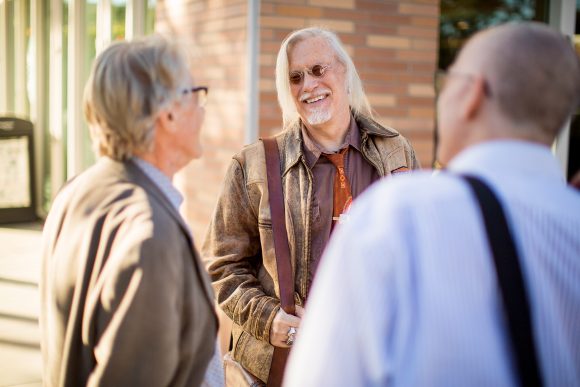 McLAREN: Vernon, thanks for your response. I agree with you that a rich man is in a position to help those who are poor. The Bible does not attack profits per se, but how those profits are made. And I appreciated your take on The Parable of Talents. It is often used to defend the notion that Jesus approved of capitalism. My take on the Parable of the Talents is very different from the dominant interpretation, and I would like to share it with you. You could call it an alternative reading in the spirit of Paulo Freire, or Marx, for that matter. In my understanding of Jesus’ teachings, if Jesus were to comment on our current historical moment, he would never want to put people at the mercy of the free market, especially the deregulated market of today’s gangster capitalism. Nor would he have wanted the economy to be controlled entirely by the state, as in the state capitalism of the former Soviet Union, or the former Easter Bloc countries. Both were forms of capitalism, one state centralized capitalism, and the other, free market capitalism.
McLAREN: Vernon, thanks for your response. I agree with you that a rich man is in a position to help those who are poor. The Bible does not attack profits per se, but how those profits are made. And I appreciated your take on The Parable of Talents. It is often used to defend the notion that Jesus approved of capitalism. My take on the Parable of the Talents is very different from the dominant interpretation, and I would like to share it with you. You could call it an alternative reading in the spirit of Paulo Freire, or Marx, for that matter. In my understanding of Jesus’ teachings, if Jesus were to comment on our current historical moment, he would never want to put people at the mercy of the free market, especially the deregulated market of today’s gangster capitalism. Nor would he have wanted the economy to be controlled entirely by the state, as in the state capitalism of the former Soviet Union, or the former Easter Bloc countries. Both were forms of capitalism, one state centralized capitalism, and the other, free market capitalism.
There is one way to object to the position that Jesus does not adopt the Old Testament condemnation of profit, and that is the Parable of the Talents. And that appears to be your position. One objection to your interpretation is that a parable is a literary device, and the interpretation could be that we are all obliged to contribute our creative capacities for the realization of the kingdom of God. But I don’t take this position. My position is of a very different type.
Clearly, in both the Lucan version (Luke 19:11-27) the version found in Matthew (Matt. 25:14-30), the Parable of the Talents is a condemnation of the exploitation of the peasants by the master, and an attack on profit-making in general (although the differences between the two versions do have theological implications but let’s not focus on that). Let me make my case. I believe that it is an error to identify the “Master” with God. First of all, let’s look at several contexts, the Old Testament and the agrarian economy during the time of Jesus. First, throughout the Old Testament, profit making is inexorably condemned and the evidence is overwhelming. The Torah condemns profit-making through commerce, loans at interest, and the process of production itself. But there is another context: the manner in which business was done in an agrarian economy in Jesus’ time and how the hearer of Jesus’ words would have reacted to the Parable of the Talents. Jesus was teaching communism, and its crystal clear, even in the Parable of the Talents. The early Christian communities were communist, and shared everything. See Acts 2:44-45: “All the believers together had everything in common; they sold their possessions and their goods, and distributed them among all in accordance with each one’s needs.” Let’s not confuse this with Soviet communism or the communism of the Eastern Bloc during the 20th century, which were state capitalist and totalitarian dictatorships. But let’s get back to the Parable of the Talents. My interpretation that follows is based on a Freirean reading of The Parable of the Talents by William R. Herzog and is paraphrased from his work, Parables as Subversive Speech: Jesus as Pedagogue of the Oppressed (and the subtitle reflect the famous work of my mentor, Paulo Freire, Pedagogy of the Oppressed. Herzog attempts to show Jesus as a critical pedagogue. First, we need to see the parable in the context of peasant values in early Mediterranean societies which contained the notion of “limited good” and the preference for “use value” over “exchange value.” The agrarian economy in Jesus’ time was undergoing changes caused by commercialization. There was an antipathy among the peasants towards the growing exchange economy in Jesus’ time. In addition, during Jesus’ preaching in Galilee and Judea, the rural population was being subjected to the Roman and the Temple forms of tribute. The servants or retainers in the Parable of the Talents are not state officials, but their wealth depended on the same population that was being exploited by Jerusalem and Rome, and the peasants understood what was happening, and how they were being additionally exploited by the master and his household servants (these servants were more like the master’s own trusted inner circle). The third servant’s characterization of the master is key to the Parable of the Talents—he speaks the truth to the master, and exposes his true function in the society, and is punished for doing so. After all, the master is akin to an absentee landlord, bent on increasing his wealth through his absence in the household by dividing it among his trusted household staff and charging them to invest it in order to return a yield. Peasants during the war with the U.S. backed Contras in Nicaragua, when asked to interpret The Parable of the Talents, saw the master in this light—as an exploitative capitalist. But I want to take this interpretation much further. In Jesus’s time the basic social, economic, cultural and political unit was not the peasant household, but the oikos, the great household of the elite, aristocratic families, which were basically trading houses, export-import businesses, where wealth was concentrated, often obscenely concentrated. The elites used their wealth to make loans to peasant farmers. This enabled the farmers to plant the crops. Interest rates were, researchers conclude, from 60 percent up to 200 percent. The masters of the great households were not so much interested in profit, but wanted to acquire land as collateral. The elites would foreclose on their loans during hard times when the crops were failing due to drought or disease, and could not cover their incurred indebtedness. The elites, like the master in the parable, and their servants were adapting to the growing effects of commercialization on the agrarian economy and were more interested in the control of land, not just the control of the peasants who lived on them. There were efforts in Jesus’ time to displace peasants from their patrimonial lands and to reduce their status to dependent laborers. Children were forced to become day laborers. The sick and those with injuries or disabilities were left to die. The dynamics of debt that impacted peasant households in Jesus’ time was horrific. Who set the policies for controlling peasant holdings and labor? The answer: the servants, who served as retainers for the master. In Jesus’s time, the servants, or the retainers, were viewed with suspicion and caution, and dread. At the same time, there were small manufacturing operations specializing in luxury goods, and the only markets were the urban elites. The three servants could have partnered with these operations. Again, according to Herzog, they could have also combined trade with the normal export and import of goods produced in the household. The servants (retainers) certainly had the means to increase their wealth.
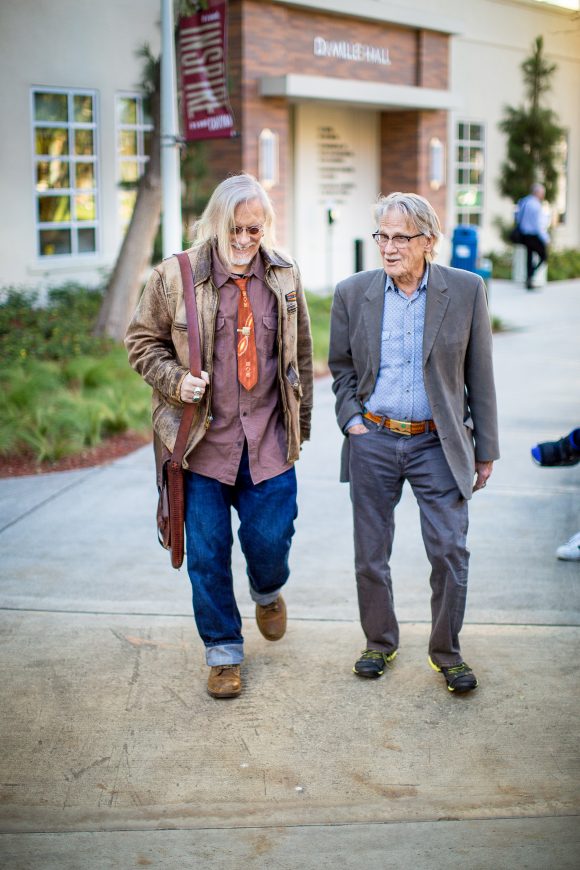 This was not a test by the master for the servants as the servants had already passed many tests, and if the master wanted to test them, it would make more sense to test them while the master was around to curtail any disaster. Even one talent was a considerable sum in those days. The gold talent-measure reportedly weighed roughly the same as a person. Besides there was too much riding on the accumulation of wealth for this to be a test.
This was not a test by the master for the servants as the servants had already passed many tests, and if the master wanted to test them, it would make more sense to test them while the master was around to curtail any disaster. Even one talent was a considerable sum in those days. The gold talent-measure reportedly weighed roughly the same as a person. Besides there was too much riding on the accumulation of wealth for this to be a test.
In Jesus’s agrarian society, the ruling class controlled roughly 2 percent of the wealth. When the rulers managed to acquire the peasant lands through default of loans given to the peasants, the elites could shift the types of crops being produced to maximize the crop yields. Or it was possible to monetize land usage by converting the land to vineyards or orchard. Often the traditional use of the land by the peasants prevented the land from maximum exploitation by the rulers. The term, “reaping where he had not sown and gathering where he had not spread seed” suggests that the master was participating in extortion to enhance his wealth.
The distribution of talents was a means to consolidate wealth, to make the powerful become more powerful. The servants are ranked “each according to his ability” in Matthew but the translation could also mean, “each according to his rank or power.” The profit of 100 percent was the minimum according to the laws of Hammurabi, and if it were less, it would have been considered a default. Two of the servants doubled their entrusted wealth so this means that they met their minimum profit or perhaps even exceeded it, given the master’s commendations. So the game of ‘honest graft” being played here is this: After the servants secure their master’s initial investment, they double it, and this guarantees that the servants will make a profit. The servants are doing the dirty work for the master—and the peasants in Jesus’ time knew how the game was played. In fact, the servants took much of the heat from the peasants in lieu of the master. The third servant represents the view of the peasant who opposes the master. The praise heaped on the first two servants mystifies the ugly value augmentation role of the economy. They are praised for being good exploiters of the peasants. But at the same time they become even more dependent upon the master, as they are treated as clients and put in charge of greater aspects of the household, and constantly reminded who constitutes the source of their patronage. To “enter into the joy of your master” is a mystification of the cycle of oppression, as well as a call to celebrate differentiating wealth (inequality), their abundance in the midst of the deprivation of others. This is a mockery of the Old Testament which stipulated that the wealthy make interest free loans to the poor. What follows the Parable of the Talents is the Parable of the Sheep and Goats. Jesus, as our shepherd who looks after us, is shown separating the nations of the earth like a shepherd who in his daily life separates the sheep from the goats. The goats are placed on the left hand of Jesus, while the sheep are on his right.
In Matthew 25:34-36, Jesus says to the sheep, “Come you, blessed of my Father, inherit the Kingdom prepared for you from the foundation of the world, for I was hungry and you gave me food, I was thirsty and you gave me drink, I was a stranger and you took me in, I was naked and you clothed me, I was sick and you visited me, I was in prison and you came to Me“. Now how should masters–or anyone for that matter–treat others? We find this in Ezekiel 18:7-9: “But if a man be just, and do that which is lawful and right …. and hath not oppressed any, but hath restored to the debtor his pledge, hath spoiled none by violence, hath given his bread to the hungry, and hath covered the naked with a garment; he that hath not given forth upon usury, neither hath taken any increase, that hath withdrawn his hand from iniquity, hath executed true judgment between man and man, hath walked in my statutes, and hath kept my judgments, to deal truly; he is just, he shall surely live, saith the Lord God“. Do we not detect a condemnation of what today we could call monopoly capitalism but in biblical times would refer to larger enterprises (houses joining with other houses) to acquire the smaller and more vulnerable businesses, in the words of Isaiah 5:8: “Woe unto them that join house to house, that lay field to field, till there be no place that they may be placed alone in the midst of the earth”? Capitalism is a system that takes what should be shared in common, natural resources, or the wealth of nations, and redistributes them to the wealthy, increasing their power and their ability to exploit further. And this could also lead to practices of imperialism since in the time of Jesus, the wealthy houses (the paterfamilias or the oikodespotes) were a reflection of the city, actually, according to Herzog, a microcosm of the city. The households governed the cities, in fact. The servants in the household were not slaves but at the same time were completely dependent on their patron-master. The kingdom was the most powerful level of society in Jesus’s time and was a collection of cities. If the kingdom operated as did the master in The Parable of Talents, this could indeed lead to imperialist conquests of other kingdoms–and in fact, this is what happened, and what happens, even up to the present day. The parables of Jesus have this transhistorical sense about them.
The third servant is punished, the result of telling the truth, of speaking truth to power. Jesus spoke truth to power and was crucified. As Herzog notes, correctly in my view, by burying the talent, the servant took it out of economic circulation. By being buried, it could not be used to dispossess more peasants from their lands through the form of usurious loans. He is the hero of The Parable of the Talents who cuts through all the phony praise by the master and the peasants listening to Jesus tell The Parable of the Talents would have understood this. The third servant was a whisteblower—an early Daniel Ellsberg or Edward Snowden. The third servant denied the self he was becoming—an exploiter, part of the system of economic exploitation. He spoke truth to power and was forced to bear the cross of exile into the world of poverty.
The Parable of Talents reinforces Jesus’s message of condemning differentiating wealth. Does not James 5:1-6 condemn the acquisition of wealth by the agricultural entrepreneurs? The rich are condemned in the Sermon on the Mount (Luke 6:24) “Because you have received you comfort.” As Miranda notes, James uncovers the origin of wealth when he says (James 5:4): “See, what you have whittled away from the pay of the workers who reap your fields cries out, and the anguish of the harvesters has come to the ears of the Lord of Armies.” This “whittling away” is not an illegal act on the part of the masters–these vile masters of mankind. It is systematic exploitation, or what theologians would call structural sin. It is the expropriation of the produce of the workers’ labor. Read in light of today’s unfettered, unregulated capitalism, The Parable of the Talents is an implicit call for an alternative to social relations of exploitation, not a affirmation of capitalism. At least, that’s my take on it, thanks to research done by Miranda and Herzog.
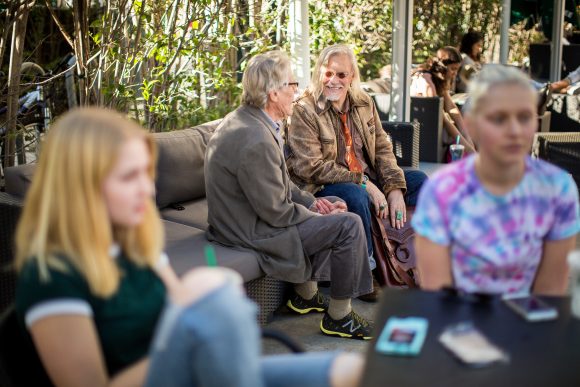 SMITH: Very interesting. Your take on the parable is the more common in my experience. Mine is rejected by the people who call themselves liberals. For me, the Parable of the Talents is not about capitalism. It’s about how wealth is created out of the nothing that exists without human ingenuity and voluntary exchange. With precious few exceptions, neither capitalists nor socialists get it. (Whittling by either the buyer or the seller due to asymmetry of power — which can be limited only by openness of entry — can endanger the process, and is the source not of wealth, as you say in James, but affects its distribution. Adam Smith much admired the diversity of churches in America for this reason).
SMITH: Very interesting. Your take on the parable is the more common in my experience. Mine is rejected by the people who call themselves liberals. For me, the Parable of the Talents is not about capitalism. It’s about how wealth is created out of the nothing that exists without human ingenuity and voluntary exchange. With precious few exceptions, neither capitalists nor socialists get it. (Whittling by either the buyer or the seller due to asymmetry of power — which can be limited only by openness of entry — can endanger the process, and is the source not of wealth, as you say in James, but affects its distribution. Adam Smith much admired the diversity of churches in America for this reason).
The human mind cannot live with inconsistency.
Mike Gazzaniga, the neuroscientist at UCSB, illustrated this principle with a case. He had a patient in the hospital who believed she was in her home. He asked her: “How do you explain those elevators in the hall outside your room?” She replied” “Oh, Dr. Gazzaniga, if you only knew how difficult it was to install those elevators.” Paul preached parousia, that the second coming was at hand, a position increasingly difficult to maintain. Believers would have had no difficulty in selling all and giving to the poor in preparation for judgment. Generosity for all the wrong reasons.
That small bands can specialize through sharing norms by mutual trust and trustworthiness is, I believe, what enabled our ancestors to walk out of Africa, and settle the entire world, except NZ and Madagascar, globalization long before Christ. The cooperative elements are deep in our psyche, and you see it (trust and trustworthiness) very strongly in our lab experiments. But it diminishes under coercion and its resentments. All consistent with Adam Smith’s propositions on beneficence and justice.
I lived in co-op houses, at KU in 1949-1952. These off-campus private associations were interracial when all KU student housing was “reserved for members of the Caucasian race”. All duties — cooking, cleanup, house chores — were shared. A committee made the assignments for the week, and we were free to trade assignments, otherwise conflicts created chaos. It worked great, we were poor and saved money by this system of self-employment. It worked because we could export money and import goods from the world economy. I loved it, not least because in the company of my black housemate I could get into The Green Lantern, an all black bar in North Lawrence. This was before Brown vs Topeka, the civil rights act, and the Watts riots over the next dozen years that changed everything.
Why are Cuba, North Korea and Venezuela so poor? Is that the only solution to inequality? I think you said that it won’t work in one country until all are socialist. Hmm, so I can’t do a successful experiment somewhere as proof of concept. Suppose we impose it on the whole world and it fails. How do we escape that piece of handiwork?
I like the world where you grew up in Canada, and the one where I grew up in Kansas, Take the cash, let the credit go, ne’r heed the call of a distant drum.
Here is the economic historian’s view of world economy:
McLAREN: The graph above provoked some thinking on my part, and especially from discussions with Marxist humanists such as Peter Hudis and Kevin Anderson. From my experience as a Marxist humanist, my sense is that the graph can be quite clearly and succinctly explained pretty much by the Communist Manifesto first published by Marx and Engels in 1848. As Marx often repeated, the historical mission of capitalism is to revolutionize the means of production, appreciably increase the productivity of labor, and produce unprecedented levels of material prosperity — and capital achieved this, and more, although there were human and environmental costs to this production (just think of some of the writings of Charles Dickens). Marx even described the capitalist revolution as capital’s “civilizing mission” — and this was one reason why he denied that socialism could emerge prior to the emergence of capitalism (it’s not so clear if this holds true for every particular country but is a good rule of thumb). This has been a truism for all serious Marxists who understood this and repeated it–all the way from Kautsky to Lenin and Luxemburg to Gramsci. The graph actually confirms Marx’s prescient analysis. While aspects of capitalism existed in northern Italy and the low countries as early as the 14th century, capitalism came into existence with the emergence of a world market and went on to become a world system, (even in the late 19th century, the word capitalism wasn’t in widespread use. Well, just as capital was able to self-expand and come part of a world system, so socialism can thrive, but only as a world system. The most fundamental question raised by Marxists today — after so many economic crises and the rise of austerity capitalism–is whether capitalism is still on a “civilizing mission” or whether it has become an real obstacle to democracy. Capitalism’s purpose is to augment value, to create more capitalism, but productivity growth has dropped 50% globally in the last 2 decades (more if you exclude China, where it has grown at a higher rate than elsewhere).
SMITH: You understand Marx better than I do, but the main storey behind the graph is not growth in capital, but innovation — ideas, as McClosky likes to tell us, ” by a country carpenter or a boy telegrapher or a teen Seatlle computer whiz” — and that required “liberation” in the sense that ordinary people were judged more by merit and less by privilege. One of my favorite examples is Glasgow appointing James Watt Mathematical Instrument Maker for the University at age 22, after the trade association corporations refused to allow him to open a shop in the town.
McLAREN: Capital is increasingly finding its way into speculative financial sectors instead of being invested in the real economy, since the former is generating a higher rate of profit than the latter. And capitalism appears to be undermining its own objective conditions of existence, as it substitutes short-term profit maximization, oligarchic concentration of wealth and political power (will Trump by canonized by the Saint of Capital?) and ecological exploitation for productive investment. Now a lot of wonderful things have happened as a result of capitalism and the growth of the productive forces in medicine, literature and the arts, the sciences — you name it. But let’s not confuse these wonderful accomplishments with the logic of capitalism. Capitalism by itself doesn’t care what happens as a result of its augmentation of value. It cares about profits. Capitalists might care about art and religion and beauty, but that remains outside the logic of capitalism itself.
SMITH: I fully agree. The economics of it is very simple: Finance is a cost of producing consumable goods and productive capital; a dead weight loss. It has risen to about 8% relative to GDP. I keep asking my finance friends, “Where is the output surge?” But far worse than its failure to contribute to income is its huge impact in net wealth reduction a direct consequence of the collapse of the housing bubble and that has lowered median wealth far more than average wealth.
McLAREN: I appreciate that at Chapman there can be an exchange of ideas that’s available to all. There are efforts to bring scholars from different fields together in conversation, breaking down the disciplinary boundaries that often, unfortunately, separate us. At Chapman, professors reciprocate and exhibit an abiding interest in what other scholars are thinking and doing not only in the service of their students, or the University, but in terms of making a difference in the society outside of campus life. In the field of critical pedagogy, we call this practicing “public pedagogy” and it’s very important, especially now in this divisive national political climate that is breaking apart the country, yet at the same time bringing others together to discuss what can be done to foster genuine participatory democracy and, in fact, to save the planet from ecocide destruction.
This sense of community is particularly important since it appears to be a truism that so many disciplines bleed into each other, and the barriers between them are really quite fluid and artificial in many instances.
SMITH: I fully agree. We could not have created the Humanomics program if (professors) Bart Wilson (economics) and Jan Osborn (English) had not entered a dialogue. Bart gave a different interpretation than the consensus at an informal gathering; Jan had never heard those ideas, and they ended up teaching their first course together in which they and the students explored these ideas. The students loved learning through dialogue on classic texts, and this gave birth to Humanomics. Scholars in English and Economics, who tend to never talk, are now starting to.
I think our interchange shows that when you get below all the verbiage we probably agree far more than disagree, and especially on basic human rights, if differences emerge on how to get there. It’s been very pleasant.
McLAREN: Thanks, Vernon. I agree we share so much in common, and I appreciate your wisdom and your courage to fight the good fight with your contributions to making the world a better place.
Photos by Nathan Worden ’13 (MBA ’15).

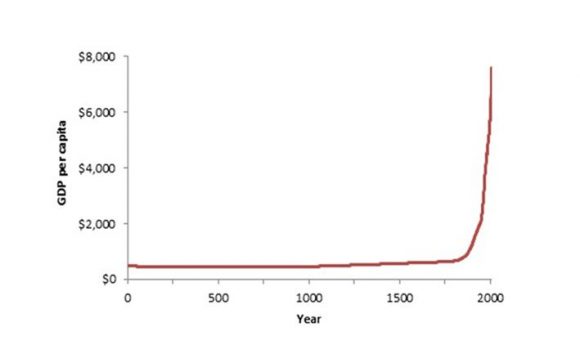




What a fantastic dialogue – I feel like my brain grew ten sizes just from reading it. Thanks for showing that those with differing opinions can be respectful of each other and can even learn from from each other — and I hope this is but the beginning of a beautiful friendship! (Also — keep rockin’ the amazing jewelry, guys…!)
McLaren & Smith: A Critical Response by Dr. Geraldine Mooney Simmie, Senior Lecturer in Education, School of Education, University of Limerick, Republic of Ireland
Contact details: Geraldine.Mooney.Simmie@ul.ie
I read the interview between Professor Peter McLaren and Professor Vernon Smith with some interest and great sadness in many places. I am familiar with the theoretical and visionary work of McLaren on Revolutionary Pedagogy in education but was not until now familiar with the thinking of Professor Vernon Smith, Nobel-winning economic scientist.
In this regard I want to join this conversation by way of offering a critical response.
Should academics cross disciplinary boundaries and ideological divides and engage in conversations about what might unite us and help make this world a better place for all? Clearly the answer is yes and in this respect McLaren and Smith are to be complemented in starting this conversation.
However, I have a very different take on the purpose of such an interview rather than simply to identify areas of commonality (What Unites Us).
It is to this purpose that I want to devote the remainder of my response.
Firstly, I want to take issue with the implicit view that to achieve a viable alternative to the contemporary social order of fast capitalism all we need do is cross boundaries between disciplinary areas and ideological views – to wait for the theorists (in university seats of while male privilege and classical hierarchy) to solve this complex social, cultural, epistemic and political puzzle in relation to increasing levels of inequality in a western world fuelled by fear, a rhetoric of blame game, hatred of outlier minorities and competitive individualism.
Smith’s reference to the privilege of his daughters versus the deficit of support in the past for his sisters shows naiveté for his now wealthy male view of gender, forgetting his humble origins and the fact that his daughters were raised in a middle class background. However, from the available western statistics they too will more than likely experience the glass ceiling for women workers in what continues to be male dominated career areas or as women partners in western views of marriage that have yet to be based on authentic equality and reciprocity.
Secondly, confining arguments to jousting based on the scholarly rules of argumentation, viewing the ‘problem’ of today’s social order as either a simplistic economic and possibly ethical problem (argued by Smith) and/or a moral problem within a participatory democracy framework (argued by McLaren) while necessary will not be sufficient to move this debate forward to a new social order of emancipation and authentic democratisation for all.
Thirdly, I want to ask who benefits and who loses from this framing of the problem – a framing I am all too familiar with from Habermasian research and border crossing work I engaged with in teacher education across Europe in several projects in the last decade (see Recent Publications below).
Engaging in these conversations at the academy is important, but it might be more useful for the purposes of intelligence gathering rather than to glean commonalities – to better understand the continuing lure of the Right mantra of local flexibility with minimal state regulation and how we might move in human solidarity to defeat this oppressive and, scientifically justified, if flawed thinking.
We may need to re-interrogate earlier (in my opinion deeply flawed) thinking in the Enlightenment – a view of linear rational man that has sadly left us as human beings without a wholesome view of humanity, a view that fails to take account of the complexity of power relations and multiple hegemonies and suppresses the role of affectivity, subjectivity, femininity, the arts, aesthetics etc. in our understanding of how we might achieve a viable alternative social order to what McLaren has in previous writing called the Behemoth of Fast Capitalism.
People are clearly duped by the clarion call for freedom which is simply granting freedom for the corporate bosses to by-pass, decentralise and dismantle state regulations for work as well as for education as a social responsibility for public interest values (regulations that have been hard won over a century by the Trade Union movement and others). Greater freedom to commit what McLaren reminds us in the words of St. Paul (as well as Marx) is the structural nature of sin, the institutionalisation of poverty in schools, universities and workplaces. This ‘greater freedom’ so that people can be employed as precariat (zero-hour) contract workers – who according to Smith are born free and can sink or swim within his meritocratic view of the social order.
According to Smith economics is defined within a simplistic view of fiscal space, people paying their taxes and enacting their ethical of duty in a ‘trust full’ way that joins economics and ethics and greatly benefits the managers and owners of capital but fails to frame this problem as a political problem. Until and unless we are prepared to think the world politically, to interrogate differential power relations, to include the viewpoints of critical femininity and to understand the superstructures of governance we will never be able to answer the Freirian call to interpret and change the world (and the field of education) for the betterment of all humanity and the future of the planet.
Recent publications
Mooney Simmie, G., de Paor, C., Liston, J., & O’Shea, J. (2017). Discursive positioning of beginning teachers’ professional learning during induction: a critical literature review from 2004 to 2014. Asia-Pacific Journal of Teacher Education (ifirst on line): DOI: http://dx.doi.org/10.1080/1359866X.2017.1280598
Mooney Simmie, G., Moles, J., & O’Grady, E. (2016). Good teaching as a messy narrative of change within a policy ensemble of networks, superstructures and flows. Critical Studies in Education (ifirst on line): http://dx.doi.org/10.1080/17508487.2016.1219960
Mooney Simmie, G.., & Edling, S. (2016). Ideological governing forms in education and teacher education: a comparative study between highly secular Sweden and highly non-secular Republic of Ireland. Nordic Journal of Studies in Educational Policy, NordSTEP 2016, 2: 32041 – http://dx.doi.org/10.3402/nstep.v2.32041
Mooney Simmie, G., & Lang, M. (2012). What’s Worth Aiming for in Educational Innovation and Change? Berlin and New York: Waxmann Publishers.
“If you use labor to pound sand it has no value, and no government can know that value, only free peoples.”
This was really close to being really good. Maybe something like, “The true value of using labor to pound sand can’t be known by government, only by consumers.”
“The third servant is punished, the result of telling the truth, of speaking truth to power. Jesus spoke truth to power and was crucified. As Herzog notes, correctly in my view, by burying the talent, the servant took it out of economic circulation.”
The third servant was punished because he hid his light under a bushel. Jesus definitely did not hide his light under a bushel… but he was punished because some people prefer darkness.
If you don’t prefer darkness then you might be interested in this… Commerce As Communication.